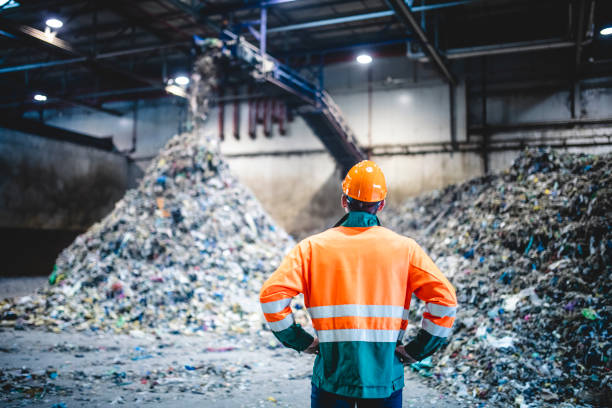Maintaining your commercial refrigerator is essential for ensuring food safety, reducing energy costs, and prolonging the life of your equipment. Regular maintenance not only prevents unexpected breakdowns but also ensures that your refrigerator operates at peak efficiency. In this comprehensive guide, we’ll explore the key steps and best practices for maintaining your commercial refrigeration unit.
Understanding the Importance of Maintenance
Commercial refrigeration units are the backbone of any foodservice operation. They store perishable items at safe temperatures, ensuring that food remains fresh and safe to consume. Poorly maintained refrigerators can lead to food spoilage, health code violations, and increased operational costs. Regular maintenance helps to:
- Improve Efficiency: Clean and well-maintained units run more efficiently, using less energy and reducing utility bills.
- Extend Lifespan: Proper care can significantly extend the life of your refrigeration equipment, delaying the need for costly replacements.
- Ensure Food Safety: Consistent temperatures are crucial for preventing bacterial growth and maintaining food quality.
- Prevent Breakdowns: Routine checks and maintenance can identify potential issues before they lead to equipment failure.
Daily Maintenance Tasks
- Clean Spills and Debris:
- Wipe up any spills immediately to prevent the growth of mold and bacteria.
- Regularly check and clean the interior and exterior surfaces to maintain hygiene.
- Check Temperature Settings:
- Verify that the temperature is set correctly and consistently within safe ranges (typically 38°F for refrigerators and 0°F for freezers).
- Use a digital thermometer to ensure accuracy and adjust settings if necessary.
- Inspect Door Gaskets:
- Check the door seals for any signs of wear, cracks, or tears.
- Clean the gaskets with a mild detergent to remove any food particles or dirt that may prevent a proper seal.
Weekly Maintenance Tasks
- Clean Condenser Coils:
- Dust and dirt on the condenser coils can reduce efficiency and cause the unit to overheat.
- Use a coil brush or vacuum cleaner to gently remove debris from the coils.
- Inspect the Fan Blades:
- Ensure that the fan blades are clean and unobstructed.
- Listen for unusual noises that could indicate a problem with the fan motor.
- Check for Proper Airflow:
- Make sure there is adequate space around the unit for ventilation.
- Avoid placing items too close to the vents inside the refrigerator, as this can obstruct airflow and cause uneven cooling.
Monthly Maintenance Tasks
- Defrost the Unit:
- If your refrigerator does not have an automatic defrost feature, manually defrost the unit to prevent ice buildup.
- Turn off the refrigerator, remove all food items, and allow the ice to melt completely before cleaning and drying the interior.
- Clean the Drip Pan:
- Locate and clean the drip pan, which collects condensation from the refrigeration unit.
- Use a mixture of water and vinegar to disinfect the pan and prevent mold growth.
- Inspect Electrical Connections:
- Check the power cord and plug for any signs of damage or wear.
- Ensure that the unit is plugged into a properly grounded outlet to prevent electrical issues.
Bi-Annual Maintenance Tasks
- Professional Servicing:
- Schedule a professional technician to inspect and service your commercial refrigeration unit.
- A thorough check by a professional can identify and fix issues that may not be visible during routine maintenance.
- Check Refrigerant Levels:
- Low refrigerant levels can lead to inefficient cooling and increased energy consumption.
- Have a technician check and refill refrigerant levels if necessary.
- Lubricate Moving Parts:
- Ensure that all moving parts, such as hinges and door latches, are properly lubricated to prevent wear and tear.
Best Practices for Maintenance
- Develop a Maintenance Schedule:
- Create a maintenance schedule that outlines daily, weekly, monthly, and bi-annual tasks.
- Assign responsibilities to staff members to ensure that all tasks are completed on time.
- Keep a Maintenance Log:
- Maintain a logbook to record all maintenance activities, including the date, tasks performed, and any issues identified.
- This log can be useful for tracking the performance of your unit and scheduling professional service visits.
- Train Your Staff:
- Train your staff on proper maintenance procedures and the importance of keeping the refrigeration unit clean and functional.
- Ensure that everyone knows how to identify potential issues and who to report them to.
- Use Quality Replacement Parts:
- When replacing parts, use high-quality, manufacturer-approved components to ensure compatibility and reliability.
- Avoid using generic or low-cost parts that may not meet the necessary standards.
Troubleshooting Common Issues
Even with regular maintenance, commercial refrigeration units can experience problems. Here are some common issues and how to troubleshoot them:
- Unit Not Cooling Properly:
- Check Temperature Settings: Ensure the thermostat is set to the correct temperature.
- Inspect Door Seals: Make sure the door gaskets are sealing properly and not allowing warm air in.
- Clean Condenser Coils: Dirty coils can impede cooling efficiency.
- Unusual Noises:
- Fan Issues: Check the fan blades and motor for obstructions or damage.
- Compressor Problems: Listen for loud or unusual noises from the compressor, indicating a need for professional servicing.
- Water Leaks:
- Blocked Drain Line: Ensure the drain line is clear of obstructions and allowing condensation to drain properly.
- Defrost Issues: Excessive ice buildup can cause water to leak; ensure the unit is defrosting correctly.
- Frost Buildup:
- Door Seals: Ensure the door is closing tightly and the gaskets are in good condition.
- Defrost Cycle: Check that the defrost cycle is functioning correctly and not allowing excessive ice to form.
Conclusion
Maintaining your commercial refrigerator is crucial for the smooth operation of your foodservice business. Regular maintenance not only ensures that your refrigeration units run efficiently but also extends their lifespan and maintains food safety standards. By following a comprehensive maintenance schedule, training your staff, and addressing issues promptly, you can keep your commercial refrigeration system in top condition.
Investing time and resources into proper maintenance practices will pay off in the long run by reducing energy costs, preventing costly repairs, and ensuring the consistent performance of your refrigeration units. Make maintenance a priority, and your commercial refrigeration system will serve your business reliably for years to come.
Check the latest article on Glass Wool!
Hi there! I'm Kashif Khan, an expert in SEO and content creation. I enjoy Fucking website, Why to share, to group, i will destroy your site on google





